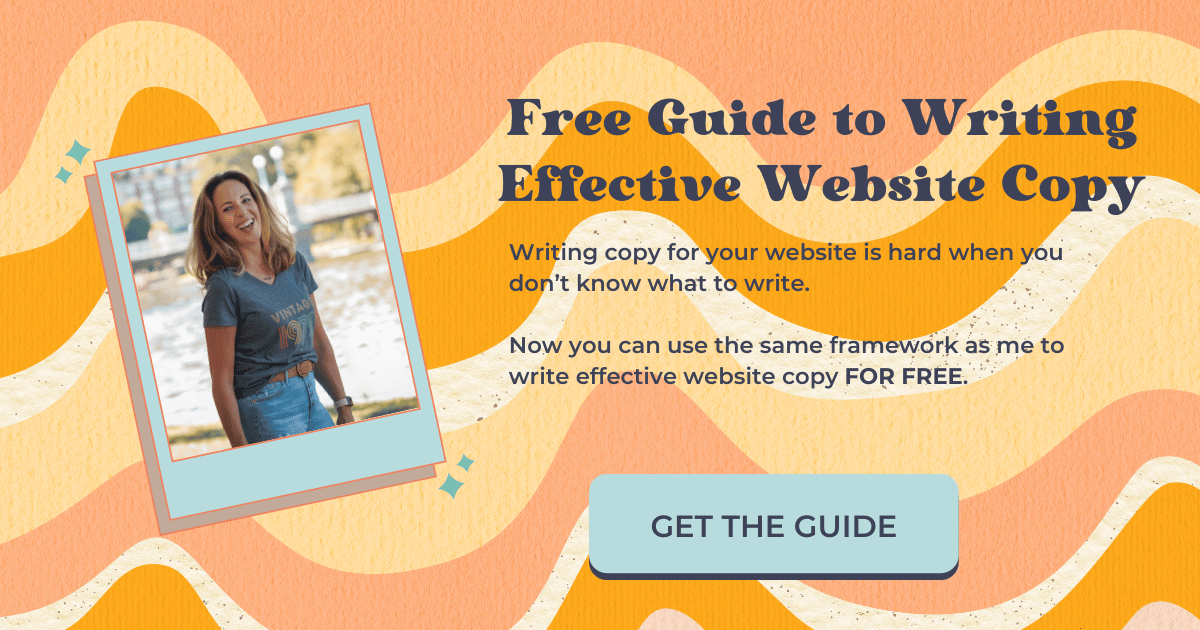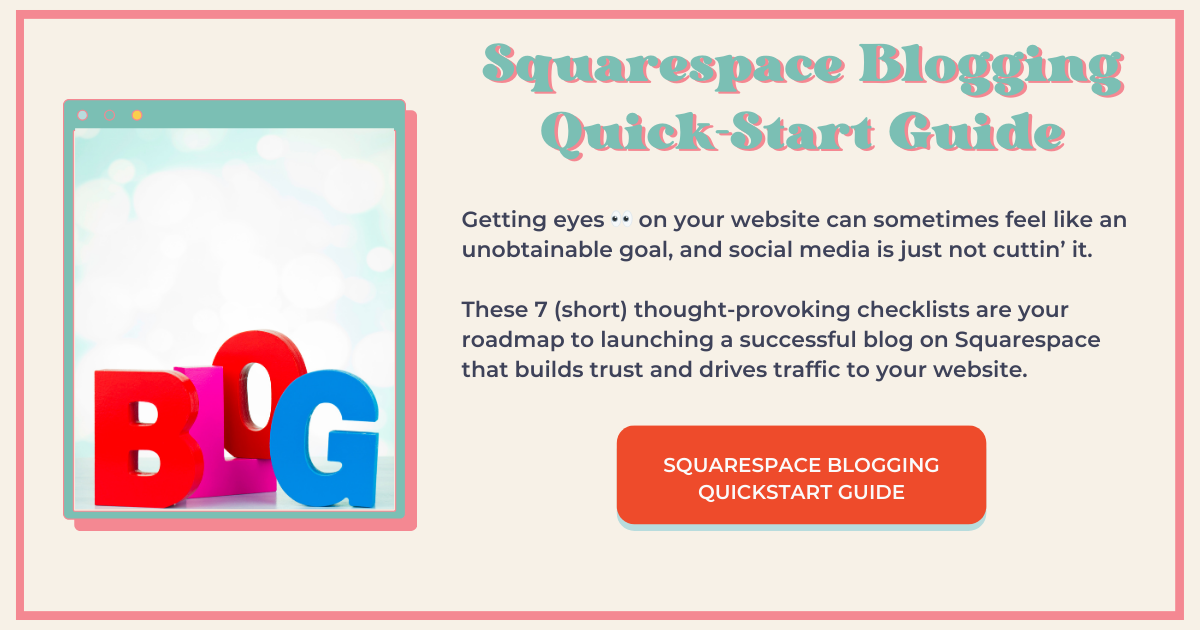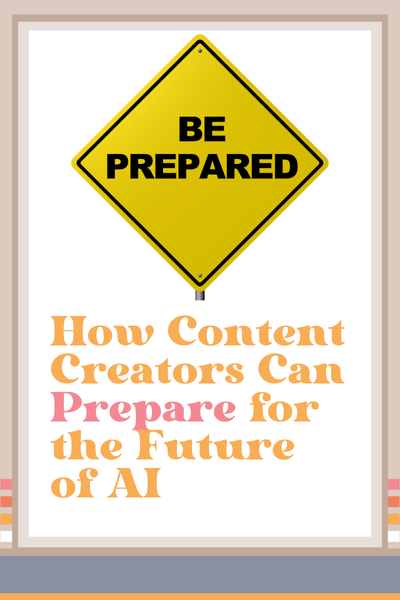How Content Creators Can Prepare for the Future of AI
AI tools like ChatGPT and Bard are rewriting the rules of content creation (excuse the pun).
From generating articles in seconds to summarizing complex topics, AI is making content more accessible—but it also raises big questions. Will AI tools start citing sources? Will original creators get proper credit? And how can content creators ensure their work stands out?
Whether you're a blogger, writer, or digital creator, it's time to think ahead. This post breaks down how AI might impact content creation in the coming years and what you can do now to prepare.
Why AI Citing Sources Could Be the Next Big Shift
One of the biggest debates around AI-generated content is whether these tools will be required to cite sources like blog posts, news articles, and research studies.
Right now, AI models generate responses based on vast datasets but don’t always provide clear attributions. This raises significant concerns about copyright infringement, as AI tools may be using protected intellectual property without proper authorization.
Some content creators argue that AI scraping their work without citations is akin to unauthorized reproduction, potentially violating copyright laws. However, legal frameworks around AI-generated content are still developing.
Growing concerns about transparency, intellectual property rights, and potential legal challenges could push AI developers to implement clearer attribution policies in the near future.
Why Source Attribution Matters:
Credibility: Users trust AI-generated content more when they see sources.
Fair Recognition: Content creators deserve credit for their work.
Regulatory Pressure: Governments and organizations are pushing for AI accountability.
FAQ
Q1: Why don’t AI tools always cite sources now?
A1: Most AI models are designed to generate responses based on their training data rather than pulling directly from live sources. Some AI tools, like Bing AI, have started citing sources, but it’s not yet standard practice.
Q2: Could AI-generated content increase plagiarism risks?
A2: Yes. If AI pulls ideas from existing content without attribution, it can blur the lines between inspiration and plagiarism. This is why clearer citation practices are being discussed by legal experts, content creators, and policymakers who are concerned about AI’s impact on intellectual property rights.
How Content Creators Can Stay Competitive in an AI-Driven Future
With AI-generated content becoming more common, content creators need to focus on what AI can’t do as well—originality, personal insights, and unique storytelling. AI might be able to generate text, but it can't physically show you how to do something the way a YouTube tutorial can.
At the same time, SEO is far from dead—it's evolving. As search engines refine their algorithms to distinguish between AI-generated content and human-created content, strategic SEO optimization remains crucial.
For Squarespace users, tools like SEOSpace can help streamline the process, ensuring your content is well-structured, properly indexed, and highly discoverable.
Video content, hands-on demonstrations, and real-world applications remain areas where human creators have a strong advantage.
Ways to Stand Out:
Offer Personal Insights: Bring your own experiences, case studies, and unique perspectives to the table—AI can’t replicate your lived expertise or personal storytelling.
Use Multimedia: AI-generated content is mostly text-based. Adding images, videos, or interactive elements—like quizzes, polls, or embedded tutorials—makes your content more engaging.
Optimize for SEO: Ensure your blog is well-structured and easy to find with strong SEO practices.
FAQ
Q1: Can AI replace content creators?
A1 AI can assist in content creation but lacks human creativity, emotion, and firsthand experiences. The best strategy is to use AI as a tool rather than view it as competition.
Q2: Should I disclose when I use AI in my content?
A2 Transparency is always a good practice. If AI assists in research or drafting, letting your audience know helps build trust.
How to Future-Proof Your Content Strategy Against AI
As AI-generated content becomes more widespread, content creators must think long-term about how to remain relevant and valuable.
AI can automate tasks, but it lacks human creativity, emotion, and the ability to form genuine connections. The best way to prepare for the future is by focusing on aspects of content creation that AI can’t replicate.
Key Strategies for Long-Term Success:
Develop a Strong Brand Voice: AI can mimic tone, but it can't create a distinct and recognizable personal brand that builds trust with an audience.
Engage with Your Community: Building relationships with your audience through comments, discussions, and anywhere your audience is hanging out fosters loyalty and credibility.
Offer Exclusive or Gated Content: Creating premium content, memberships, or email-only resources ensures that your work remains valuable and protected.
Leverage Storytelling: AI can generate facts, but it lacks the emotional depth and nuance of human storytelling. Personal stories and unique insights make content more engaging and memorable.
FAQ
Q1: How can I make my content stand out in an AI-saturated space?
A1: Focus on what AI can’t do—personal storytelling, community building, and creating original insights based on real-world experience. Engaging with your audience directly also sets you apart.
Q2: Should I change my content strategy because of AI?
A2: Not necessarily, but adapting to new trends is always smart. Prioritizing authenticity, multimedia content, and brand differentiation will help future-proof your content strategy.
Steps Content Creators Should Take Now
Whether AI citation becomes the norm or not, content creators should take proactive steps to future-proof their work.
Actionable Steps:
Improve Content Quality: High-quality content from your own unique perspective is more likely to be recognized.
Build Authority: Increase your online presence through guest posts, backlinks, and other types of engagement like Facebook groups and online forums.
Diversify Content Formats: AI struggles with video, podcasts, and other multimedia—expand beyond text.
Stay Updated on AI Trends: Keep an eye on how AI and search engines are evolving.
FAQ
Q1: How can content creators take control of their visibility online?
A1: Focus on strengthening your brand presence through SEO, social engagement, and consistent, high-quality content. Ensuring your work is well-optimized and widely distributed helps you maintain ownership over your visibility.
Q2: What skills should content creators focus on to stay relevant?
A2: Content creators should hone skills that AI can't easily replicate, such as storytelling, emotional intelligence, and deep subject matter expertise. Engaging directly with audiences, experimenting with new content formats, and leveraging personal experiences will ensure continued relevance in an AI-driven landscape.
Key Takeaways
AI is rapidly changing content creation, but there’s still room for human creativity, expertise, and originality. Whether AI citation becomes standard or not, the best way to prepare is to keep creating high-quality, unique content that provides real value.
Are you ready for the future of AI in content creation? Let’s keep the conversation going—drop a comment or share your thoughts below! 👇
This page contains affiliate links
Like this post?










